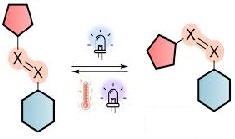
A Ph.D. in Supramolecular Chemistry focuses on the non-covalent interactions between molecules that result in complex, structured structures with distinct features. The program is typically 3 to 5 years long and covers topics such as host-guest chemistry, molecular recognition, self-assembly, and functional material design. Students conduct both theoretical and experimental research, investigating applications in medication administration, sensing, and catalysis. In most cases, admission requires a Master's degree in Chemistry or a related subject. Graduates of this curriculum enhance nanotechnology, material science, and biochemistry by pursuing positions in academia, research institutes, or the pharmaceutical and chemical businesses.